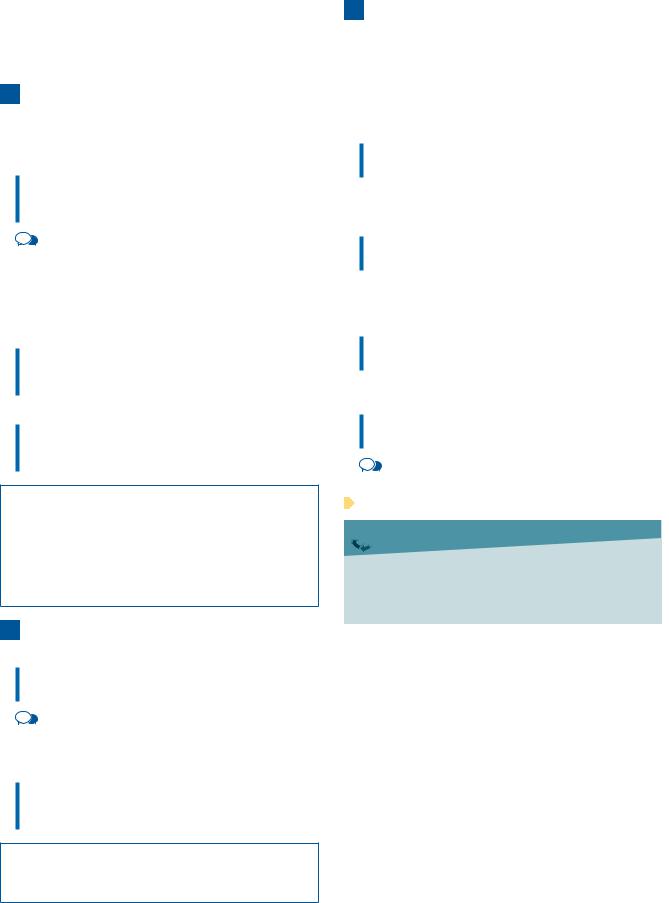
B1.1 / Students book / Unit 8
.pdf
2 READING
aAsk students how they usually find out about new books or films to read or see. Elicit different ways we can find out and put these on the board, e.g. articles in magazines, newspapers, online. Students might also suggest TV programmes where people and/or critics
talk about new books and films. We can also learn about them from friends. Tell students that these are called reviews. Ask: Have you read an online review recently? Was it useful? Why / Why not? Students read the online reviews and match them with the books in the pictures. Check answers together.
Answers
1A Puzzle for Logan
2Two Lives
3Eye of the Storm
4A Puzzle for Logan
b Discuss the question as a class. Ask: Which book would you most like to read? Why?
Suggested answers
2 five stars 3 one or two stars 4 four or five stars
3 WRITING SKILLS
Positive and negative comments; Linking: although, however
aAsk students to categorise the comments in pairs. Check answers as a class and put two lists on the board. Brainstorm other words or phrases they could add to the list, e.g. Positive: fantastic, informative, easy to follow, amazing, imaginative, educational. Negative: confusing, boring, scary, very slow.
Answers
Positive: well written, realistic, wonderful, couldn’t put the book down Negative: hard to follow, not brilliant, not very exciting, a bit dull, quite complicated
bRemind students that when writing, it is important not to have lots of short sentences but to link sentences and ideas. Students look at the examples and answer the questions.
Answers
1b
2a However b although
cStudents underline four more examples in the texts. Check as a class.
Answers
1However, the story is quite hard to follow, because …
2It’s a beautiful story, although it’s also very sad …
3However, it’s not very exciting, because …
4Although the story is quite complicated, you should …
d Ask students about the position of although in a sentence.
 CAREFUL!
CAREFUL!
Make sure that students are clear that however usually goes at the beginning of a sentence to link back to the previous sentence. Students may try to use it in the middle to join two parts, but this is likely to result in clumsy over-long sentences. Although can be placed either at the beginning or middle of a sentence.
Answer
2
eStudents join the sentences individually. Check answers as a class.
Answers
1I can recommend the book. However, it’s difficult to read. / Although I can recommend the book, it’s difficult to read. / I can recommend the book, although it’s difficult to read.
2The story is a bit boring. However, the characters are interesting. / Although the characters are interesting, the story is a bit boring. / The characters are interesting, although the story is a bit boring.
3It’s an exciting story. However, it’s not the best story I’ve ever read. / Although it’s an exciting story, it’s not the best story I’ve ever read. / It’s an exciting story, although it’s not the best story I’ve ever read.
4It’s fiction. However, it’s based on a true story. / Although it’s fiction, it’s based on a true story. / It’s fiction, although it’s based on a true story.
 EXTRA ACTIVITY
EXTRA ACTIVITY
Ask students to work in pairs. They take it in turns to start a sentence which uses although in the middle. Their partner has to complete the sentence so that it makes sense. They could also start a new sentence with However and ask their partner to continue, e.g. I watched a reality TV show last night, although ... (I don’t really enjoy them!) I watched a good film last night on television. However, ... (I didn’t see the end because my friend phoned me.) Ask students to share examples during feedback.
4 WRITING
aTell students that they are going to write a book review. Go through the points they need to think about with the class. Give students some time to note down their ideas for 1 and 2, and remind them to use although and however for linking. Monitor and help with vocabulary and ideas as necessary.
bStudents write their reviews and give their star rating. Monitor and answer questions. Point out errors for students to self-correct. or encourage self-correction if you see mistakes.
 FAST FINISHERS
FAST FINISHERS
Fast finishers can add another paragraph about other reasons why a reader might like / not like the book, e.g. length, setting, style, kind of book, etc.
cStudents read their partner’s review and check for the points mentioned in the task. Monitor and find something to praise in all the reviews.
dPass students’ reviews around the group or choose some to read aloud to the class. Ask students to choose which book they would like to read from these reviews and to give their reasons.
ADDITIONAL MATERIAL
 Workbook 8D
Workbook 8D
UNIT 8 Culture 121

UNIT 8
Review and extension
1 GRAMMAR
aAsk students to read and complete the text with the passive forms of the verbs in the box. Check answers as a class. Ask students what they think should be top of the DVD popularity list.
Answers
1 were sold 2 weren’t performed 3 were/are loved
4 was directed 5 was filmed 6 is shown 7 were written
bStudents tell their partner about a film that they like. If students have already discussed this at some stage during the unit, ask them to start describing a film and their partner has to guess the film as quickly as possible.
cStudents complete the sentences. Point out there is more than one possible answer for some. Check answers as a class.
Answers
1 was created 2 took / has taken 3 is/was based 4 directed 5 wrote 6 is/was designed
d Students correct the sentences. Check answers.
Answers |
|
1 We’ve lived 2 for two years |
3 since 2010 |
4 They’ve been 5 since 2012 |
6 I’ve loved |
 EXTRA ACTIVITY
EXTRA ACTIVITY
Individually, students write down the names of a favourite book, film and song. Now put students into small groups. Each group in turn says one of the names they have written down. The other groups try to make a correct passive sentence about it. The first group to say a sentence which is correct both grammatically and factually wins a point.
2 VOCABULARY
a Students complete the sentences. Check answers together.
Answers
1 sculpture 2 concert 3 series 4 poem 5 architecture
bStudents tell the class which sentences are true for them.
cStudents complete the sports and activities. Tell students that one is two words. Check answers together.
Answers |
|
1 snowboarding 2 gymnastics |
3 windsurfing 4 scuba diving |
5 jogging 6 athletics 7 golf |
8 yoga |
 EXTRA ACTIVITY
EXTRA ACTIVITY
In pairs, students can mime a sport from this task or Vocabulary Focus 8B on SB p.138 for their partners to guess.
3 WORDPOWER by
aWrite the word by on the board. Ask students in pairs to write down some sentences using by in different ways. Check their ideas in feedback and put some examples on the board.
Students match the sentences and meanings. Check answers. See if these meanings match any of the sentences on the board.
Answers
1 c 2 b 3 d 4 a
bTell students that there are several useful expressions that include the word by. Students match the questions and replies. Check answers as a class.
Answers
1 b 2 c 3 e 4 a 5 d
cElicit the answer to the question (by the way).
dStudents match the meanings with the phrases in 3b. Check answers.
Answers
1 by mistake 2 by hand 3 by far 4 by heart
eStudents complete the sentences with expressions from 3b. Check answers as a class.
Answers
1 by the way 2 by mistake 3 by hand 4 by far 5 by heart
f Have a full group discussion about what things students know by heart and do by hand/mistake.
Photocopiable activities: Wordpower p.259

 LOA REVIEW YOUR PROGRESS
LOA REVIEW YOUR PROGRESS
Students look back through the unit, think about what they’ve studied and decide how well they did. Students work on weak areas by using the appropriate sections of the Workbook, the Photocopiable activities and the Personalised online practice.
122 UNIT 8 Culture
